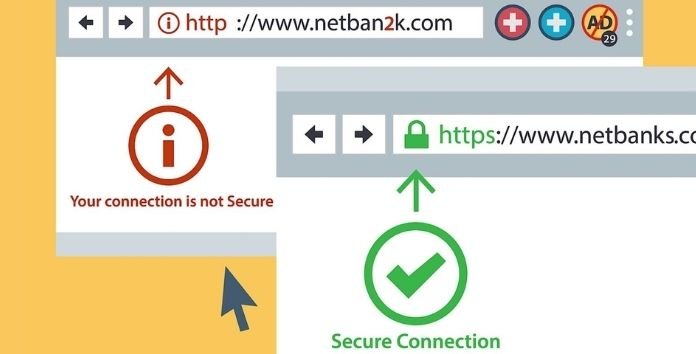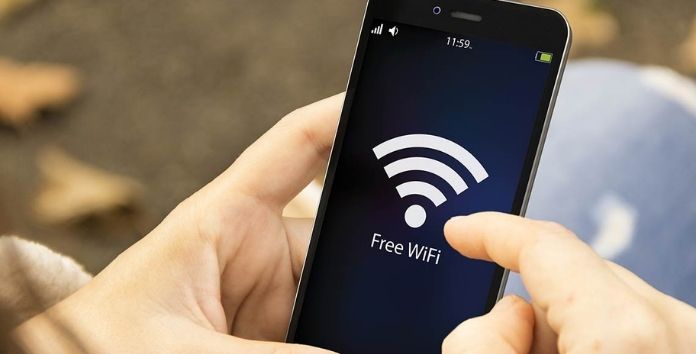Do you know about the risks of using Public Wi-Fi? After reading this article you may think twice before connecting to any free network (Public Wi-Fi).
We’ve heard that we shouldn’t open PayPal, your bank account and possibly even our email inbox while using public Wi-Fi. But what are the actual risks?
Well, your home Wi-Fi network is (hopefully) encrypted—but the Wi-Fi at a shopping mall most likely isn’t. This means that you’re at risk of somebody monitoring your online activity, or more harmful—unless you know how to safeguard yourself.
Here are a few Risks of using Public Wi-Fi, and how to avoid them.
Risks of using Public Wi-Fi:
1. Browsing without Encryption is Public
Wi-Fi uses radio waves. They broadcast, and this means anyone within the range of the public wifi can notice every activity you’re accomplishing online if they know how to, with the right software.
Without protection, anyone who wants to can see:
- Every website user visits
- Every bit of text the user send out
- User’s login information for various sites
Encryption of a wifi network is really important, as it prevents snooping by encrypting all your traffic with a private key.
At home, you can encrypt your Wi-Fi network, but Public Wi-Fi(s), on the other hand, is rarely encrypted here you don’t need to use a password in order to connect.
Does this mean you’re unable to protect yourself?
Well, no. Your other line of protection is OpenSSL, a kind of encryption offered by many trusted websites: Google, Facebook, TheFlashUpdate and most banks, to name a few.
OpenSSL encrypts the traffic between user and website, meaning no evil eye will be able to spy without permission.
In order to check that any website has an OpenSSL or not, you can see “HTTPS” in your browser’s address bar, like this:

OpenSSL isn’t bulletproof. Additionally, you should look into using a Virtual Private Network (VPN), which makes snooping on your online activity almost impossible.
Using a VPN is the most effortless way to reduce the risks of using public Wi-Fi networks.
2. Your Fellow Wi-Fi Users May Be Infected
Obviously, snooping isn’t the only potential risk on a public Wi-Fi network: there’s also the risk of malware. When you are in a network, you are indirectly connected with other devices. Your fellow wifi users might be operating an older version of OS with tons of bugs and no malware security. Unless they are connected to any public wifi, they’re only putting themselves at risk. But when they are connected to a public Wi-Fi, any malware their computer hosts can jump over to yours.
Don’t worry we have the solution for this risk too. Both macOS and Windows machines have built-in antivirus that keeps you safe from incoming malicious files. You just have to take care of your device’s settings. In Windows, you have to set all public Wi-Fi networks as “Public” in your security settings, so the OS knows not to trust them. You can also use third-party firewalls!
3. The FREE Wi-Fi Network May Be a Trap
Scammers use fake public Wi-Fi networks in the hopes they can steal personal information. If you connect to a network, like “Free Wi-Fi For you”, without password protection and a welcome screen, it might be a trap.
Connecting to such networks wouldn’t be any different from genuine wifi networks. You’ll be able to browse the websites as usual. But in actuality, you’re falling for a phishing scheme.
You won’t be able to identify, a fake version of the site you think you’re visiting, but you could be entering your email username and password into that fake site, giving your password to a scammer in the process.
OpenSSL can’t protect you in such cases—everything will appear to be working as usual.
How can you defend yourself from such networks?
The best way is to connect to only those Wi-Fi networks, you know who’s running them. Ask business owners about the name of their network, just to ensure you’re joining a legitimate network.
But even this isn’t enough. It’s possible for a network to be hijacked or replaced. That’s why it’s important to use a trusted VPN provider and reliable anti-malware on your device.
Think Ahead When Connecting to Free Public Wi-Fi
Keep these points in mind, if you wanna stay safe:
- Unencrypted traffic can be listened in by anyone.
- Make sure your firewall is active, and you have updated malware protection.
- Consider using public Wi-Fi only via an encrypted VPN service.
Hope you keep these points in your mind, actually, this is crucial for your device and personal information security. #staysafe #staytuned #keepreading
More on TheFlashUpdate:
Forwarded images on WhatsApp taking up space? Here’s how to stop auto-download on WhatsApp
Stop Videos from Auto-Playing while scrolling on Phone | YouTube Tips
